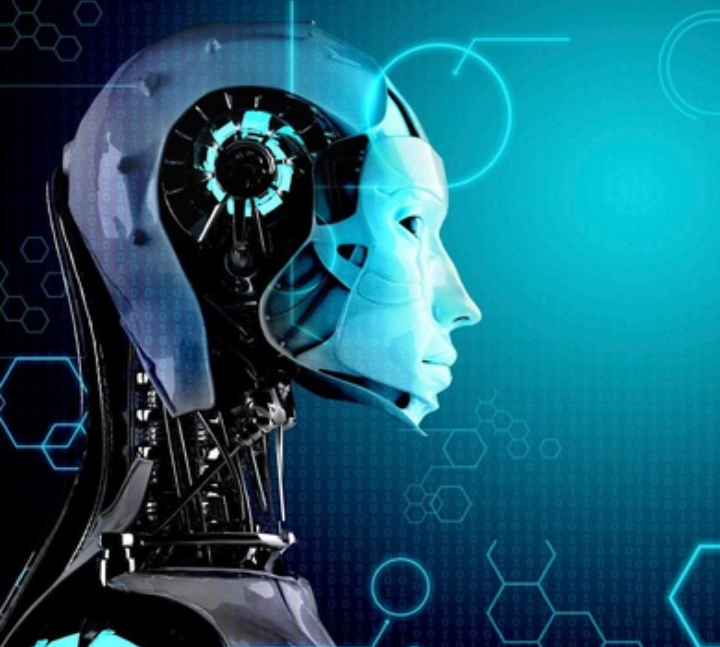Emmanuel Ologbo –
Artificial Intelligence (AI) has come a long way from its inception in the 1950s, when the idea of creating intelligent machines first emerged. Over the years, AI has evolved significantly, and today, it has found its way into various aspects of our daily lives, including transportation, healthcare, communication, to mention but a few.
While AI has the potential to bring numerous benefits, it also poses several risks. This article examines the potential advantages and disadvantages of AI technology and explores the ethical considerations that must be taken into account when developing and using AI.
Potential Benefits of AI
One of the most significant advantages of AI is its ability to increase efficiency. AI powered tools and systems can perform tasks much faster and more accurately than humans, which can save time and reduce costs in various industries.
AI technology can also help improve decision-making by analyzing vast amounts of data and identifying patterns that humans may not be able to detect. In healthcare, for example, AI algorithms can analyze medical records to identify potential health risks and recommend preventative measures.
Another advantage of AI is its potential to enhance safety. AI-powered systems can monitor and control critical infrastructure, such as transportation networks and power grids, to help prevent accidents and minimize downtime.
Potential Risks of AI
While AI technology can bring numerous benefits, it also poses several risks, including job displacement. AI-powered machines and tools can perform tasks that were once the sole domain of humans, potentially leading to job losses in various industries.
AI technology also raises privacy concerns, as AI algorithms can collect and analyze vast amounts of personal data. This could lead to breaches of privacy and the misuse of personal information, which could have severe consequences.
Finally, the potential misuse of AI technology is a significant risk. AI-powered systems can be used to carry out harmful actions or spread harmful information. For example, AI algorithms can be used to create deepfake videos that can be used to spread misinformation and cause harm.
Case Studies
To illustrate the potential benefits and risks of AI technology, let’s consider some real world examples.
One application of AI technology is in the field of transportation. Self driving cars, which use AI algorithms to navigate roads and make decisions, have the potential to revolutionize transportation by reducing accidents and improving traffic flow.
On the other hand, AI algorithms have been used to create deep fake videos that can spread misinformation and cause harm. For example, in 2018, a deep fake video of former President Barack Obama was created to spread a false message.
Ethical Considerations
The development and use of AI technology raise several ethical considerations that must be taken into account. One critical consideration is bias, as AI algorithms can be programmed with biases that reflect the biases of their developers. This can lead to discrimination and unfair treatment of certain groups.
Another ethical consideration is transparency, as AI algorithms can be difficult to understand and interpret. It is essential to ensure that AI systems are transparent and accountable, so that their decisions can be explained and challenged if necessary.
Finally, the use of AI technology raises concerns about responsibility. If an AI-powered system carries out harmful actions, who is responsible for the harm caused? This is a complex question that requires careful consideration.
Conclusively, the emergence of modern AI has been both a threat and a leverage. The potential benefits of AI technology are numerous, including increased efficiency, improved decision-making, and enhanced safety. However, there are also concerns around job displacement, privacy, and the potential misuse of AI technology.
It is essential to approach the use of AI technology with caution and to implement measures to prevent harm. This includes ensuring that AI systems are designed with ethics and privacy in mind, monitoring their use to prevent the spread of harmful information, and developing ways to ensure that AI is transparent and accountable.
AI is an advancement in technology, and like every other advancement, there are bound to be challenges at the early stages of creation and adoption. While AI can be a leverage when used properly, it must be checked, and measures put in place to prevent it from carrying out harmful actions or dishing out harmful information.
To harness the benefits of AI technology, individuals and organizations must continuously improve themselves by learning how to use AI to make themselves better in their jobs. This requires investment in education and training programs that teach people how to use AI tools effectively and responsibly.
AI technology presents both opportunities and challenges. While the potential benefits of AI are numerous, there are also significant risks that must be addressed. It is essential to approach the development and use of AI technology with caution and to implement measures to prevent harm. By doing so, we can ensure that AI is used to make our lives better while avoiding its potential dangers.








